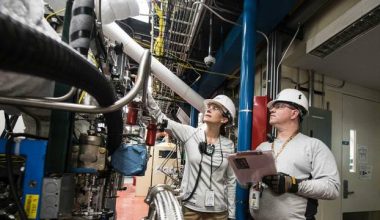
Editor’s Note: TrainingIndustry.com has partnered with SHRM to bring you relevant articles on key topics and strategies.
Stella Spanakos was looking for a place where her autistic son, Nicholas, could learn life and vocational skills after he completed high school. She became distraught over the limited choices.
“They were garbage,” she recalls. “There was no stimulation, no socialization.”
Spanakos called a friend who also has a son with autism, as well as Nicholas’ former camp counselor. The trio launched Spectrum Designs out of Spanakos’ garage. Nine years later, the Port Washington, N.Y.-based company has 40 workers, with a little more than half of them on the autism spectrum, including Nicholas and co-founder Nicole Sugrue’s son, Adam.
“My son deserved better,” says Spanakos. “People with autism deserved better.”
While similar small businesses dedicated to hiring autistic people dot the country, an increasing number of large corporations are boosting their efforts to hire individuals with autism as well. Earlier this year, EY, the global accounting and professional services company, opened a neurodiversity center in Chicago—its third in the U.S.—to support more autistic workers. Chevron Corp. plans to launch a pilot program to hire autistic individuals in one of its IT departments and has already hired others at some its service stations. Microsoft Corp. is expanding its autism hiring program beyond its Redmond, Wash., headquarters, adding Fargo, N.D., and Vancouver in British Columbia. And Quest Diagnostics is exploring hiring autistic individuals as processors at a fourth location.
Greater Visibility
Several factors are pushing this hiring trend. Society has become more familiar with autism as the topic weaves its way into popular culture. Greta Thunberg, the teenage Swedish climate-change activist who was nominated for a Nobel Peace Prize, said her autism helps her focus on her work.
Meanwhile, a Muppet with autism named Julia has been residing on “Sesame Street” for two years, while a physician with the condition is the title character in the TV series ”The Good Doctor.”
The tight labor market has forced employers to broaden their search for talent, and hiring the neuro-diverse has become part of many companies’ inclusion efforts. Also, a portion of autistic individuals are hyper-focused, enjoy repetitive tasks and pay exceptional attention to detail—attributes that make them especially well-suited for tech jobs such as those that include software testing and programming. SAP, the Germany-based software maker, and Dell, the computer technology company based in Texas, have autism hiring programs.
“There is much greater awareness of the special skills people with autism bring,” says Alycia Halladay, chief science officer at the Autism Science Foundation in New York. “It still takes special employers willing to go the extra mile to hire them.”
Autism spectrum disorder (ASD) is a developmental disability that causes social, communication and behavioral challenges, according to the Centers for Disease Control and Prevention (CDC). It’s called a spectrum disorder because the condition includes a wide range of individuals, from those who need very little help to those who can’t speak or live on their own. The cause hasn’t been determined, though it is believed to be a combination of environmental, biological and genetic factors.
The CDC says that autism affects between 1 percent and 2 percent of the U.S. population, or anywhere from 3.3 million to 6.6 million people. About 30 percent of autistic individuals also have a mental disability.
Unemployment for people with autism can be as high as 80 percent to 90 percent, advocates for autistic individuals say. While the federal Americans with Disabilities Act makes it illegal to discriminate against job candidates with a disability, some employers fear accommodations for autistic workers will be difficult and expensive. Advocates also attribute the high jobless rate to a lack of community and corporate resources dedicated to training and hiring. And, autistic individuals tend to lack social skills that are expected in job interviews, such as maintaining eye contact and engaging in small talk.
That’s why specialized hiring programs are so important: Managers who understand the traits associated with autism can make accommodations that put people more at ease. Microsoft has a recruiter dedicated to working with autistic people. Instead of the traditional interview process, job candidates spend a week in the office, giving managers an opportunity to see their skills and get acquainted with them in a less traditional setting, according to Neil Barnett, director of inclusive hiring and accessibility.
EY has altered its interview process in a similar way, though the modifications don’t end there. People with autism often have a sensitivity to light and sound, so they’re typically assigned to dimly lit, less-trafficked areas of the office. Many wear noise-cancelling headphones.
Managers are taught to adjust their communication styles when interacting with autistic individuals, who tend to be more literal than the neurotypical. For example, colleagues shouldn’t specify ”I’ll be back in five minutes” to an autistic person because the individual might get upset if the co-worker takes more or less time. If an autistic person is struggling with a task, the manager shouldn’t ask a general question such as ”How’s it going?” Any questions should be specific, such as ”It looks like you’re having a problem with that assignment. Can I help you?”
While accommodations are necessary, they’re manageable, says Hiren Shukla, EY’s neurodiversity leader.
“We have to think about the skills we need to run our business,” Shukla says. “So much is focused on tech skills, robotics, analytics. We need people with those skills, and individuals on the autism spectrum have math and tech skills.”
Stan Hwang has been working at EY for three years, and he appreciates that he can be open about his autism.
“Before I felt if I put [my autism] on an application or said it in an interview, that people would think it was detrimental to my ability to do the job,” explains the 31-year-old computer programmer.
Hwang’s enthusiasm for his job goes beyond his enjoyment of programming. The company employs a job coach for its autistic employees, who helps them with both professional and personal needs. For example, the coach helped Hwang find a suitable route to work and once gently pointed out that his shirt was too wrinkled for the office.
Chevron’s decision to hire a consultant to start a program for hiring autistic individuals for its IT team in Houston stemmed from the success of other companies’ efforts. Chevron’s leaders learned from other employers that neurodiverse software testing teams are 30 percent more productive than their neurotypical counterparts. Also, individuals on the autism spectrum outperform their nonautistic peers, with productivity increases from 48 percent to 120 percent.
“Other companies found that the neuro-diverse have really high productivity rates and special skills that others don’t have,” says Erin McGregor, manager of the global office of ombuds at Chevron.
“There is lots of help for me to reach out to,” Hwang says. “It is a safe space.”
Growing Opportunities
Earlier this year, Chevron started a program to hire autistic individuals to work at its service stations, performing duties such as cleaning and stocking shelves. The jobs can be difficult to fill, and tapping into the autism community offered a new talent pool, McGregor says.
“Autism is a spectrum, and people have a wide range of abilities,” McGregor says. “We’re trying to match the education to the job.”
It’s crucial for companies to open a wide range of jobs to autistic individuals, advocates say.
“Not everyone with autism is good at math and science,” says David Kearon, director of adult services at Autism Speaks, a New York City-based nonprofit. In fact, most autistic people can’t work in tech jobs, he says.
“We worry about people getting pigeon-holed,” he adds.
There’s also a fear that the initiatives will stop or slow if the job market cools. For now, however, companies are considering expanding their hiring.
Quest Diagnostics has been hiring people with autism for two years to process specimens for testing. The position involves logging copious amounts of data into a computer. Retaining people for the tedious job, which also often requires working nights, had been challenging, says Linda Behmke, SHRM-CP, senior project manager for diversity, inclusion and social responsibility at Quest headquartered in Secaucus, N.J.
Reaching into the autism community to fill the jobs has been a success in three of its labs, and the company is exploring adding another.
“Turnover isn’t as much of an issue,” she says, adding that the autistic employees’ work is either as good or better than the neurotypical colleagues—a key point for businesses.
“It’s nice to do this and help people, but we can’t just do it because of that,” Behmke says.
That’s true even for companies that were specifically established to provide jobs to people with autism. Spectrum is part of a nonprofit that provides training and support to the autistic community, though the businesses are self-sustaining. Co-founder Sugrue suggested making T-shirts after her research showed that such an enterprise is more recession-proof.
“Customers may give you a try because of the autism connection, but they won’t return if the quality isn’t good,” says Patrick Bardsley, co-founder and chief executive officer of Spectrum.
There’s a sign outside where he sits that says ”Executive Office,” along with an image of a slice of Swiss cheese and the word “cheese.” It’s not just a joke. The company’s work stations each have a written description along with a picture of an animal so employees who can’t read can be directed to the sheep or the cow.
There are other clues that not everyone in the workforce is neurotypical. Footprint decals on the floor show the paths in and out of rooms to avoid collisions. One employee greets a visitor with a request for names of summer camps. Another explains that he wears ear plugs to block the noise from his colleagues’ occasional loud outbursts.
Spectrum’s chief of staff is a social worker who helps calm agitated employees. Some of the employees have government-provided aides who support them during the day. Still, most of the employees can do all the jobs, from operating the silk-screen machines to putting in labels to ironing.
“I like the ironing the best,” says Robert, 23, who has worked at Spectrum for one year. “I find it calming.”
Robert, who asked that his last name not be used, doesn’t like to discuss his previous jobs.
“Every other place makes you feel like having autism is this big challenge,” explains the 23-year-old. “Here they want us to thrive.”
Copyright 2019, SHRM. This article is reprinted from https://www.shrm.org with permission from SHRM. All rights reserved.







